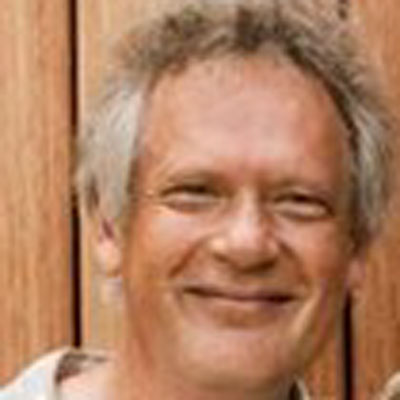
Directors
The ETICA team has extensive expertise in policing, psychology, criminal justice, and human rights law with members involved in conducting consultancy, expert witness testimony, and training programmes across many international jurisdictions including North America, Latin America, China, South East Asia, Europe, and Africa.
In addition to our highly qualified panel of international experts, the work of ETICA is also supported by a prestigious Scientific and Professional Advisory Board of international leaders in research and practice.


Professor Gavin E Oxburgh
Gavin is a Registered Forensic Psychologist and Expert Witness providing advice and guidance in legal cases in the UK and overseas. He is a 22-year veteran of the Royal Air Force (RAF) Police where he was a senior detective specialising in child protection and sexual offences.
His research focuses on the broad area of interviewing/interrogation, international human rights, and the use of empathy and rapport in successful information retrieval. In 2007, Gavin (with Trond Myklebust) founded and directed the International Investigative Interviewing Research Group, a network he chaired until 2019.
He has published widely in the broad area of legal and forensic psychology, including internationally-acclaimed books, journal articles, plus many technical and criminal justice reports. His wide-reaching research has had global impact and he regularly delivers training and consultancy on non-coercive interviewing techniques to organisations around the world, including the International Criminal Court, the United Nations, the Commission for International Justice and Accountability, the South African Police Service, the Supreme People’s Court of China, and the Institute of Defense of the Right to Defence (Brazil). He was a member of the international Steering Committee that developed The Mendez Principles on effective interviewing for investigations and information-gathering.
Professor Lorraine Hope
Dr Lorraine Hope is Professor of Applied Cognitive Psychology at the University of Portsmouth and a lead for the Information Elicitation programme of the UK National Centre for Research and Evidence on Security Threats (CREST) (https://crestresearch.ac.uk).
Over the past 20 years, her research has resulted in the development of innovative tools and techniques, informed by psychological science and practitioner demand, for eliciting accurate and detailed information and intelligence across a range of investigative contexts (eg Timeline Technique, Self-administered Interview, Structured Interview Protocol, Reporting Information about Networks and Groups (RING) technique). Her work has had global impact and she regularly delivers tools, research, evaluation and training for investigative interviewing and information-elicitation in international policing, intelligence and security sectors, including inter- and multi-national agencies, such as the Organisation for the Security and Cooperation in Europe (OSCE), the International Criminal Court (ICC) and the High-Value Detainee Interrogation Group (HIG).
As a leader in interviewing research developments and experienced in working with a range of stakeholders and end-users, Professor Hope publishes extensively on interviewing, elicitation, and applied memory topics in high quality scientific journals and practitioner-focused outlets.


Trond Myklebust
Trond holds the position of Assistant Chief of Police at the Norwegian Police University College and Program Director for their Master program in Investigation.
He gained his bachelor degree from the University of Oslo, and an MSc in Investigative Psychology, University of Liverpool. In 2009, he became the first police officer in Norway to gain a PhD. He is a member of the Work and Organizational Psychology Research Group, University of Oslo.
In 2007 he co-founded the International Investigative Interviewing Research Group (iIIRG) where he was the Co-Director & Deputy Chair until July 2019. He has trained investigators from many international law enforcement organisations in investigative procedures and specialist interview techniques.
He has published his research in various peer-reviewed journals. In 2020, he was elected as Executive Board member of the IMPACT Section of the International Association of Chiefs of Police (IACP). He also holds the position as the Norwegian National Research and Science Correspondent for the European Police College (CEPOL). He truly believes in bringing practitioners and academics together.
In 2009, he was decorated with the Norwegian Police Service Medal (with Laurel Branch) for his merits in the development of interviewing and investigative procedures in Norway.


Sean Tait
Sean Tait is the founder and current executive Director of the African Policing Civilian Oversight Forum (APCOF), a non-governmental organization working on issues of police governance and accountability in Africa. He is a board member of the African Security Sector Network and of the Afro Asian Association for Justice Development and an expert member of the African Union Steering Committee on Security Sector Reform.
He served on the project steering committee to develop an international protocol on interviewing led by ex UN special rapporteur on Torture Juan Mendez and on the advisory group led by Pablo De Grieff on developing a human rights-based prevention framework to support efforts at non recurrence.
Under his stewardship APCOF has worked with among others the AU Department of Peace and Security to develop operational guidance notes on the developing codes of Conduct in the operationalization of the AU SSR framework, the Pan African Parliament on developing a model law for Police in Africa, the African Commission on Human and People’s Rights on standards on the management of assemblies by law enforcement officials in Africa and on conditions of arrest, police custody and pretrial detention in Africa.
At a regional level he regularly co-operates with the East African Police Chiefs Cooperation Organization (EAPCCO)and has developed an agreed standard for policing in Eastern Africa, supported this with monitoring tools and led assessments of policing in Uganda, Kenya and Sudan. He has provided training to the East Africa Stand by Brigade Police component on the EAPCCO developed tools and in partnership with the Danish Demining Group translate rights-based tools on arrest and detention for the Federal and state level police in Somalia. He has collaborated with the Southern African Police Chiefs Cooperation Organization (SARPCCO) to develop a framework for crime and violence prevention and supporting tools.
He has worked directly with the South African Independent Police Investigative Directorate, the Kenyan Independent Policing Oversight Authority, the Nigeria Police Service Commission and the Sierra Leone Independent Police Complaints Commission. He holds an honours degree in criminology from the University of Cape Town.





